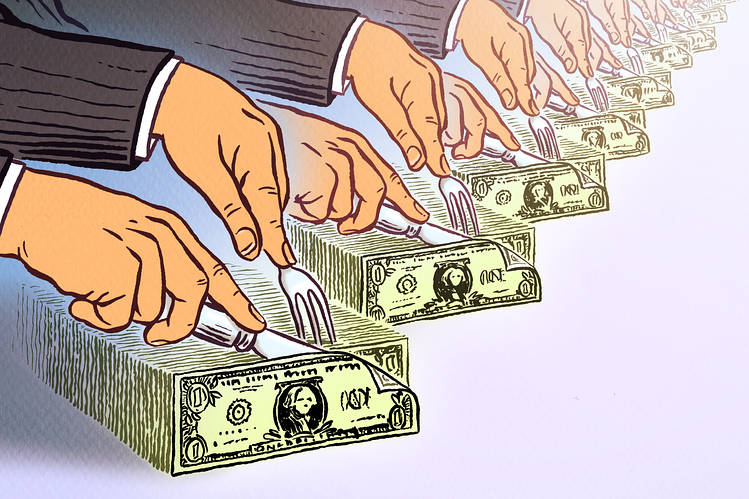It Can Cost 20 Times More to Trade A Bond Than a Stock
Most investors own bonds through mutual funds or exchange-traded funds. But the household sector, including individual investors, still holds nearly $430 billion in corporate bonds, according to the Federal Reserve. If you buy bonds directly, it’s vital to keep trading costs from devouring your income, especially in today’s world of scrimpy interest rates.
Lawrence Harris, a finance professor at the University of Southern California and former chief economist at the Securities and Exchange Commission, has just completed a study of how expensive corporate bonds are to trade.
Prof. Harris analyzed bond-price quotations gleaned through Interactive Brokers Group, the deep-discount brokerage firm where he is a member of the board of directors, and trade data from the Financial Industry Regulatory Authority. He estimates that individual investors are paying bond dealers and other middlemen an average of $7.72 per $1,000 of principal value to buy corporate bonds. If you paid that much to buy stocks, 200 shares of a $50 stock would run you at least $77.20 in trading costs—instead of the roughly $10 that you would pay at most online brokerage firms.
Corporate bonds yield an average of 3.3%, according to Barclays. So Mr. Harris’s analysis suggests that trading costs consume roughly the first three months’ worth of income on the average corporate bond—assuming you pay your broker only to buy but not to sell.
What Google’s Alphabet ($GOOGL) Spells for Investors
While Google’s moves of late may suggest an identity crisis, the Web search giant’s third-quarter results should provide a clear affirmation of what exactly it is.
Namely, Google is a $60 billion-a-year advertising business that is still growing at a double-digit rate, even if it now reports results under the moniker of its new parent company Alphabet [stckqut]GOOGL[/stckqut]. Ad revenues of $16.8 billion in the third quarter were up 13% year over year. Notably, paid clicks jumped by 23%, well ahead of the 18% gain projected by analysts. That’s the best growth shown by that measure in more than a year and was chalked up to strength in mobile search and the company’s YouTube business.
This all drove a 45% surge in net income, which soundly beat Wall Street estimates. The company also threw in a surprise in the form of a $5.1 billion share buyback—its first significant cash return program on record. Alphabet’s shares jumped in response, and built on its 13% gain since its last quarterly report.


